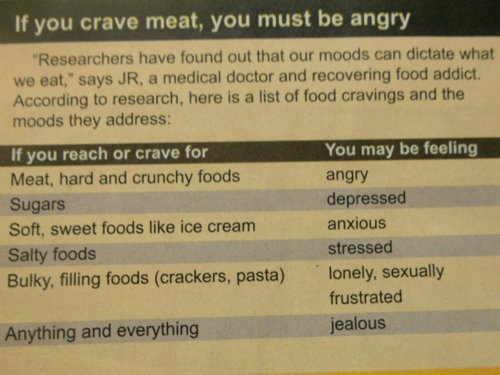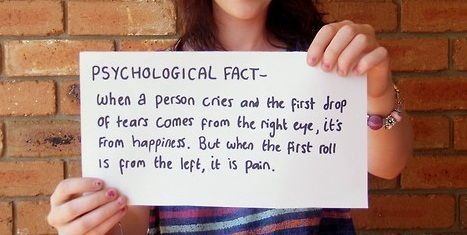If you've ever been around someone who is persistently miserable you'll find that they have a working strategy for making their experience unpleasant for themselves.
This artigo will give a few explanations why they use a strategy that makes them miserable, how that process works, and if this describes you, why you might want to change. It will also describe what you'll have to sacrifice if you no longer want to be miserable.
Also, if the benefits of being miserable are enough you'll learn how to continue to make choices and decisions that contribute to your misery.
The Benefits of Misery.
It's hard to believe that there are benefits to feeling bad but the fact is that there are. Some of these benefits include:
* Uniqueness. If you are suffering you at least can see yourself as special and even persecuted.
* Righteousness. If you are miserable because of something outside of your control you can hold it up as a banner and proclaim that you must be right to have such an enemy.
* Blame. As long as your misery can be something external to you then you can blame it for all your problems. This releases the burden of self-reflection and change.
* Familiarity. Sometimes misery is the only thing that seems familiar. Getting rid of it would mean launching yourself is a completely unfamiliar territory and might mean new things about yourself that you had never considered before.
* Misery is easy. There are very few people who go through life and are naturally happy. Those that are have found a strategy that works for them often after a lot of effort. It takes some work to change ones thinking process.
How to make decisions that make you feel miserable.
* Ask a series of miserable perguntas of yourself like
"What could go wrong about today?"
"What do I have to feel guilty about?"
"Why do bad things always happen to me?"
"Why am I feeling so terrible?"
* Make vague and unreasonable expectations and goals.
por making a goal or expectation unreasonable you'll make it impossible to achieve. por making them vague you'll never know exactly if you achieve them and you'll always be able to say "No, that's not what I meant."
* Think the worst first.
For any event that occurs you have a million ways of thinking about it. Go for the worst possible interpretation. For example, if you walk into a store and teenagers are outside laughing and smoking cigarettes they are probably laughing at you. <
* Cling to past hurts.
Progress can be easily inhibited when you use past hurt of slow you down. These can take the form of lingering on why your life has been so terrible or even por saying "We've never done it that way before. Why start now?"
Why you might want to stop feeling miserable.
* Without a doubt misery is the number one cause of suicide. If you want to live you want to get rid of your misery.
* You will have mais power (much, much more) and control over your life if you stop all the misery producing processes and take responsibility for your life.
How to stop making miserable decisions.
* Set reasonable goals using the S.M.A.R.T. goals process. If you don't know what this is do a google search.
* Know when your emotions are trying to influence away from your goals and work to keep your focus.
* Agree to take responsibility for your life and especially for your emotions. This is very hard work but very rewarding.
What you will have to give up when you stop making miserable decisions.
* You will have to give up on the belief that your suffering makes you unique. The fact is suffering is ordinary and boring to most people. We've all experienced it and there is little you can say about your suffering that will make us think of you for very long. What is exceptional and unique is someone who makes no excuses for their life and decides to excel and feel joy AS A CHOICE.
* You will have to give up blame. This means blaming anyone or anything. It means even giving up blaming yourself.
* You will have to give up on fear and timidity. Only boldness and audacity can overcome a longstanding habit of misery.
Final note.
While all of this may seem vary callus and cold it's important to point out that this is not an essay por which you should judge other people but only yourself. Bad things do happen to good people and it's a good idea to help them when you can. On the other hand, if you find someone who is persistently and habitually miserable it's generally a good idea to keep your distance from them lest they infect you with their misery and, beleive me, they can do that mais easily than you think.
This artigo will give a few explanations why they use a strategy that makes them miserable, how that process works, and if this describes you, why you might want to change. It will also describe what you'll have to sacrifice if you no longer want to be miserable.
Also, if the benefits of being miserable are enough you'll learn how to continue to make choices and decisions that contribute to your misery.
The Benefits of Misery.
It's hard to believe that there are benefits to feeling bad but the fact is that there are. Some of these benefits include:
* Uniqueness. If you are suffering you at least can see yourself as special and even persecuted.
* Righteousness. If you are miserable because of something outside of your control you can hold it up as a banner and proclaim that you must be right to have such an enemy.
* Blame. As long as your misery can be something external to you then you can blame it for all your problems. This releases the burden of self-reflection and change.
* Familiarity. Sometimes misery is the only thing that seems familiar. Getting rid of it would mean launching yourself is a completely unfamiliar territory and might mean new things about yourself that you had never considered before.
* Misery is easy. There are very few people who go through life and are naturally happy. Those that are have found a strategy that works for them often after a lot of effort. It takes some work to change ones thinking process.
How to make decisions that make you feel miserable.
* Ask a series of miserable perguntas of yourself like
"What could go wrong about today?"
"What do I have to feel guilty about?"
"Why do bad things always happen to me?"
"Why am I feeling so terrible?"
* Make vague and unreasonable expectations and goals.
por making a goal or expectation unreasonable you'll make it impossible to achieve. por making them vague you'll never know exactly if you achieve them and you'll always be able to say "No, that's not what I meant."
* Think the worst first.
For any event that occurs you have a million ways of thinking about it. Go for the worst possible interpretation. For example, if you walk into a store and teenagers are outside laughing and smoking cigarettes they are probably laughing at you. <
* Cling to past hurts.
Progress can be easily inhibited when you use past hurt of slow you down. These can take the form of lingering on why your life has been so terrible or even por saying "We've never done it that way before. Why start now?"
Why you might want to stop feeling miserable.
* Without a doubt misery is the number one cause of suicide. If you want to live you want to get rid of your misery.
* You will have mais power (much, much more) and control over your life if you stop all the misery producing processes and take responsibility for your life.
How to stop making miserable decisions.
* Set reasonable goals using the S.M.A.R.T. goals process. If you don't know what this is do a google search.
* Know when your emotions are trying to influence away from your goals and work to keep your focus.
* Agree to take responsibility for your life and especially for your emotions. This is very hard work but very rewarding.
What you will have to give up when you stop making miserable decisions.
* You will have to give up on the belief that your suffering makes you unique. The fact is suffering is ordinary and boring to most people. We've all experienced it and there is little you can say about your suffering that will make us think of you for very long. What is exceptional and unique is someone who makes no excuses for their life and decides to excel and feel joy AS A CHOICE.
* You will have to give up blame. This means blaming anyone or anything. It means even giving up blaming yourself.
* You will have to give up on fear and timidity. Only boldness and audacity can overcome a longstanding habit of misery.
Final note.
While all of this may seem vary callus and cold it's important to point out that this is not an essay por which you should judge other people but only yourself. Bad things do happen to good people and it's a good idea to help them when you can. On the other hand, if you find someone who is persistently and habitually miserable it's generally a good idea to keep your distance from them lest they infect you with their misery and, beleive me, they can do that mais easily than you think.






















